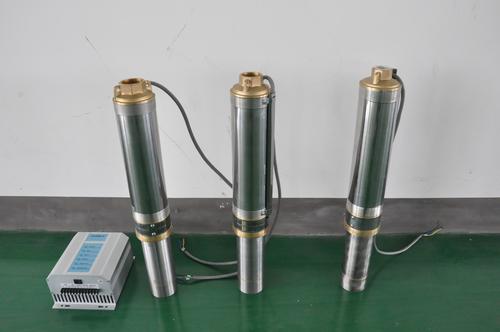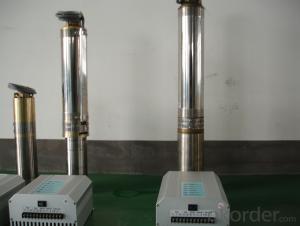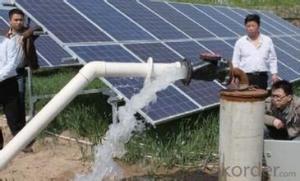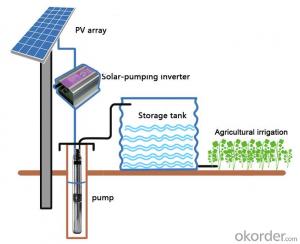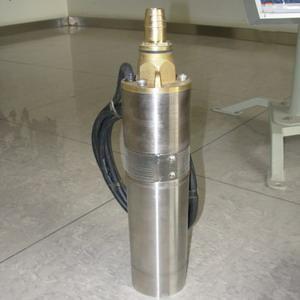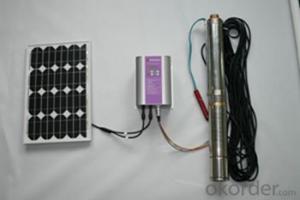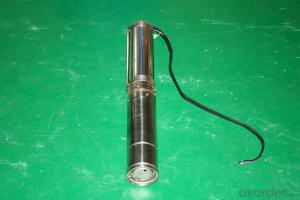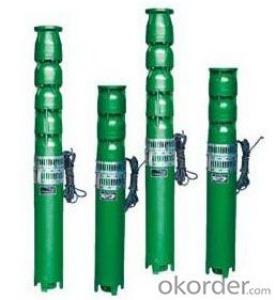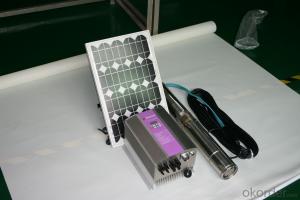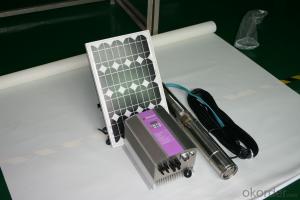Shurflo Solar Submersible Water Pump
- Loading Port:
- Shanghai
- Payment Terms:
- TT OR LC
- Min Order Qty:
- -
- Supply Capability:
- 300 set/month
OKorder Service Pledge
Quality Product, Order Online Tracking, Timely Delivery
OKorder Financial Service
Credit Rating, Credit Services, Credit Purchasing
You Might Also Like
how is the rotor made:
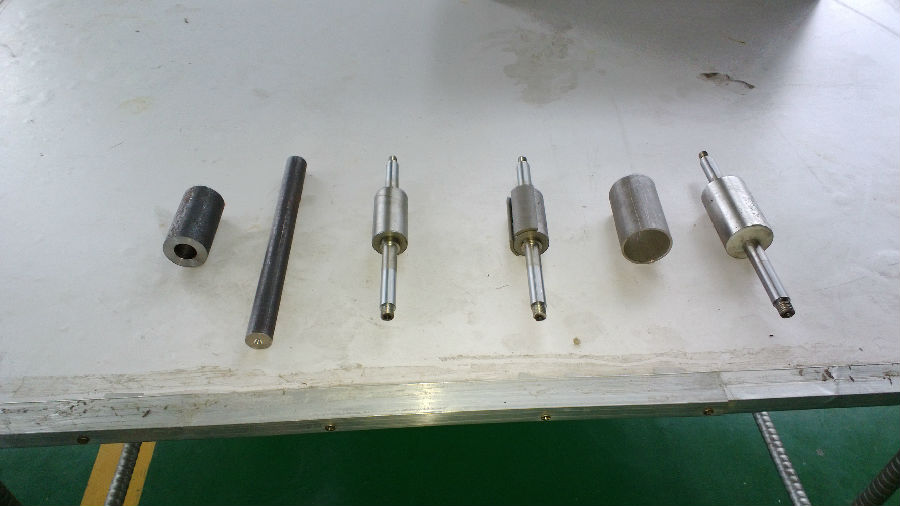
how is the motor made:
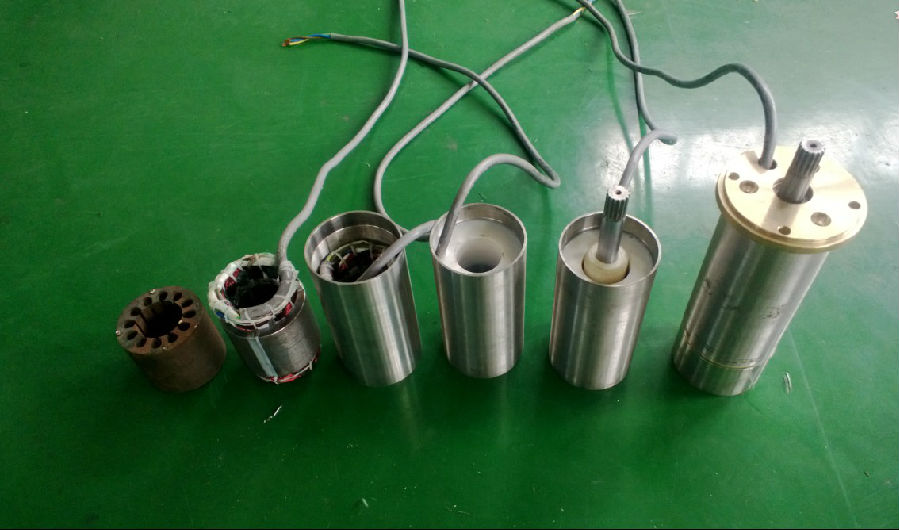
the pump :
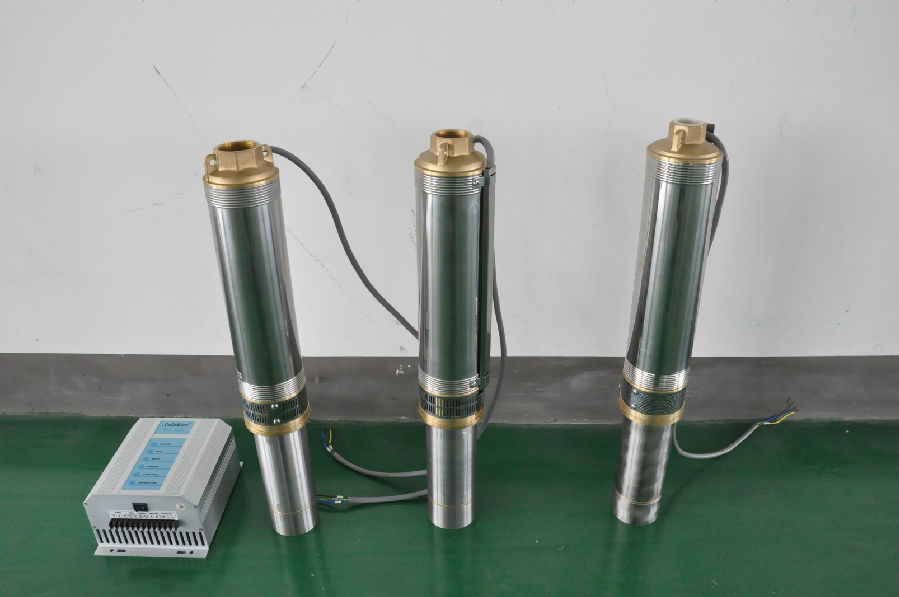
controller terminal connection:
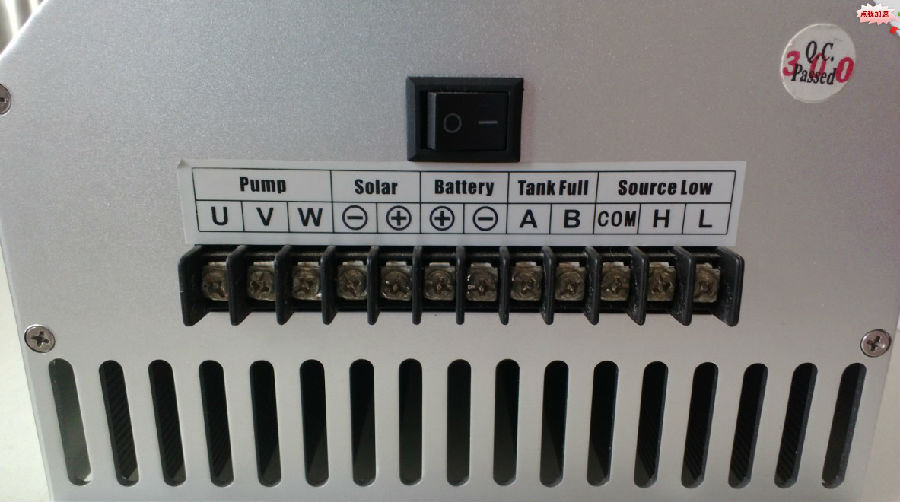
The permanent magnet:
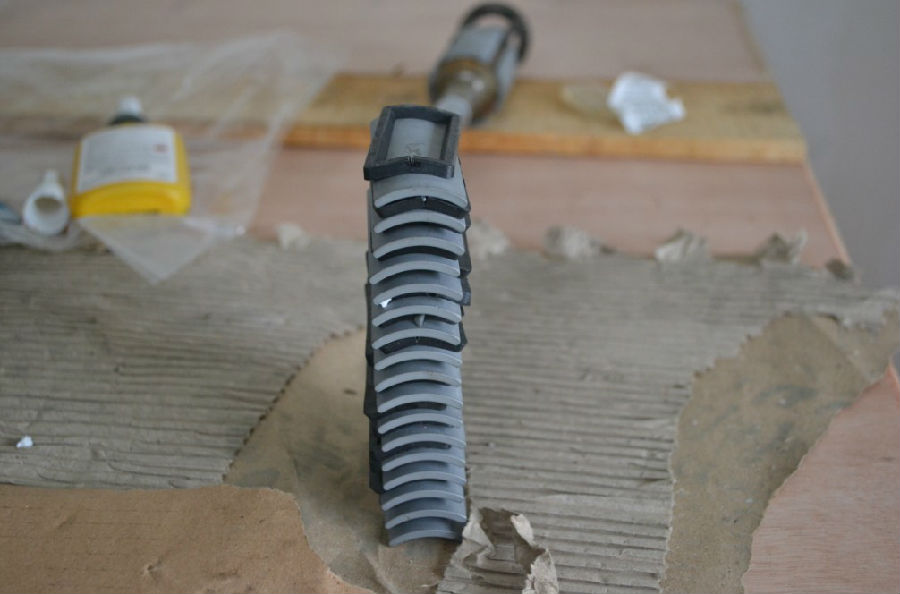
the impeller:
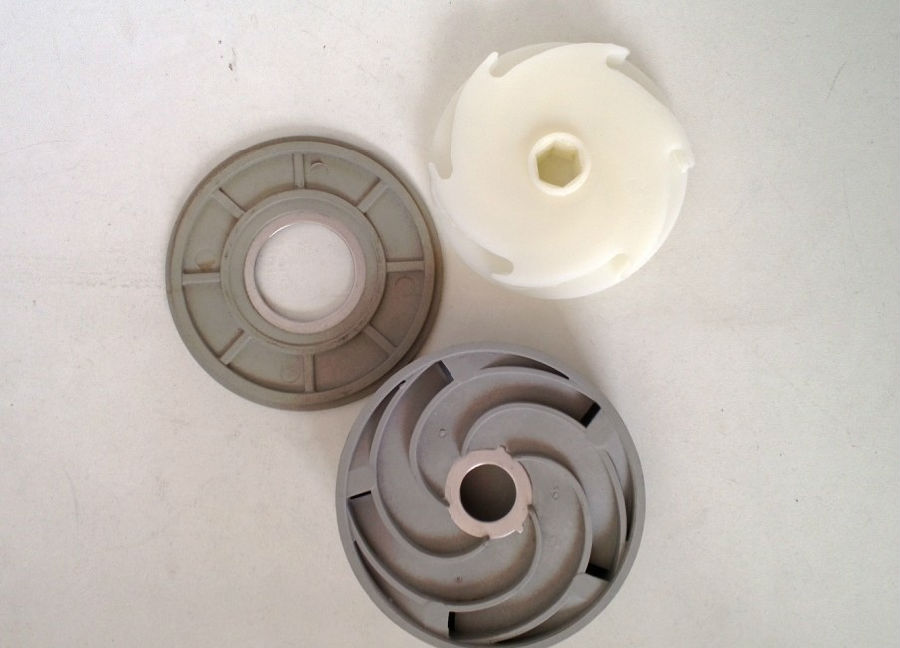
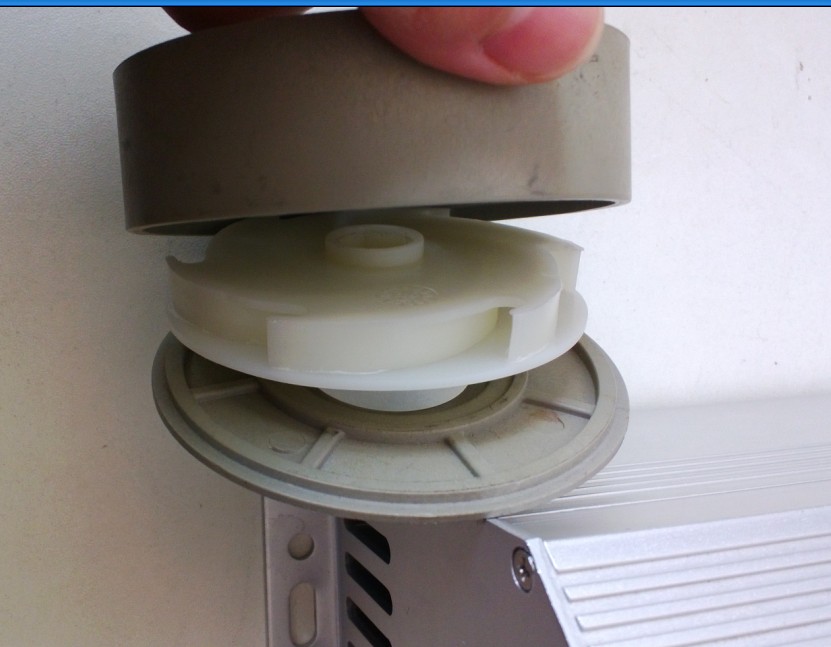
controller box:
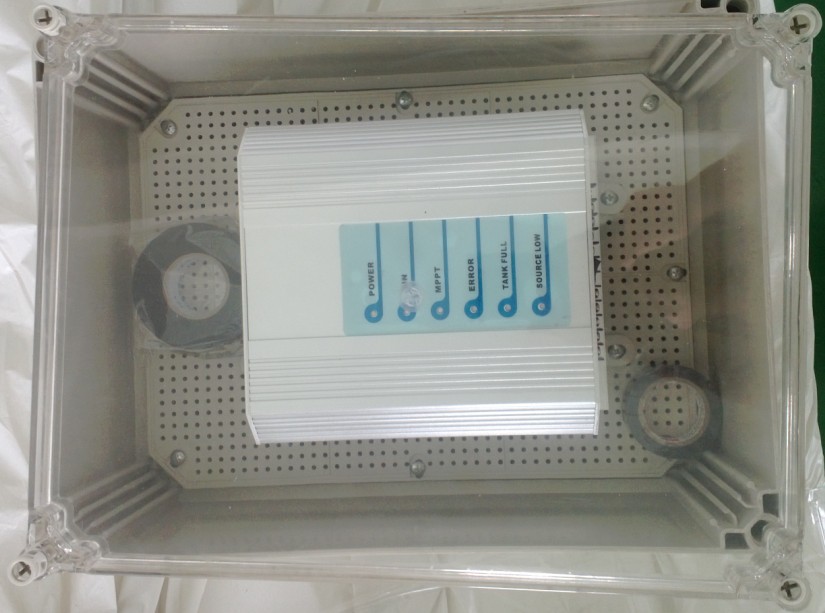
the senors:
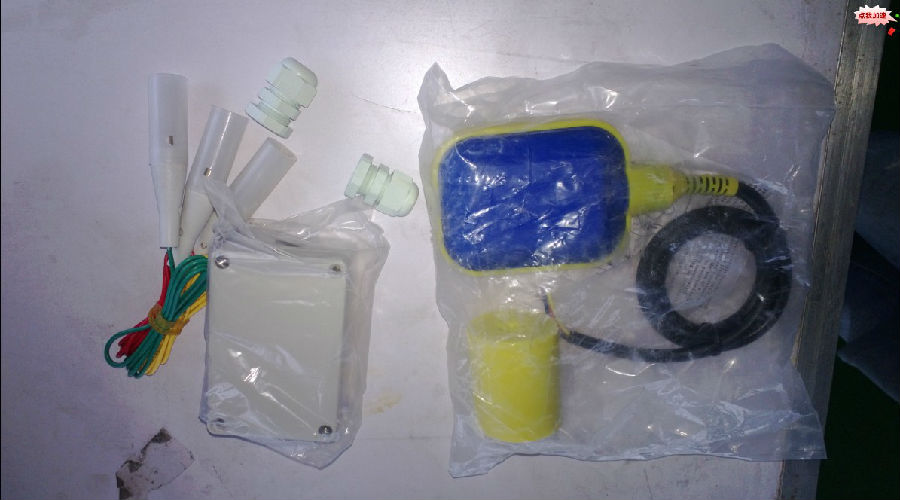
the test:
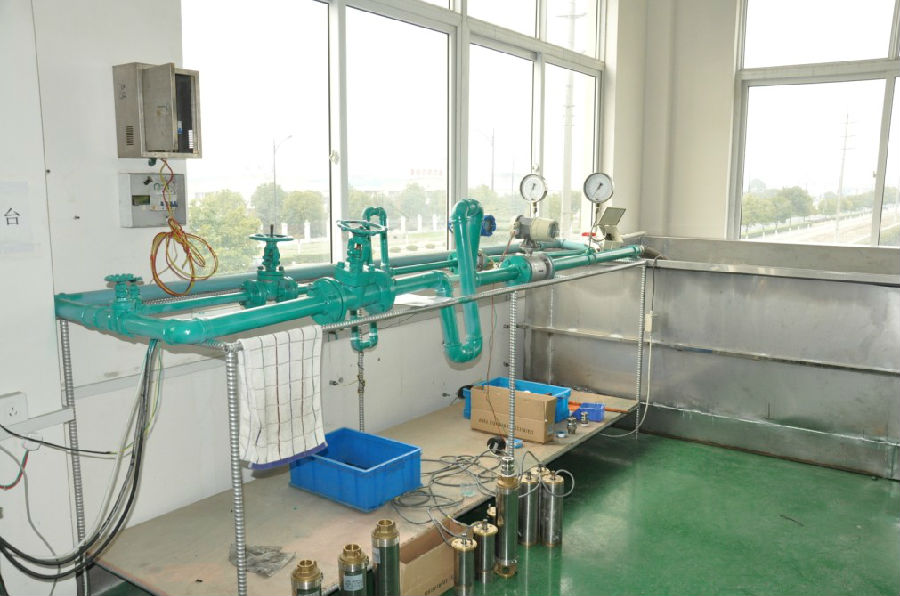
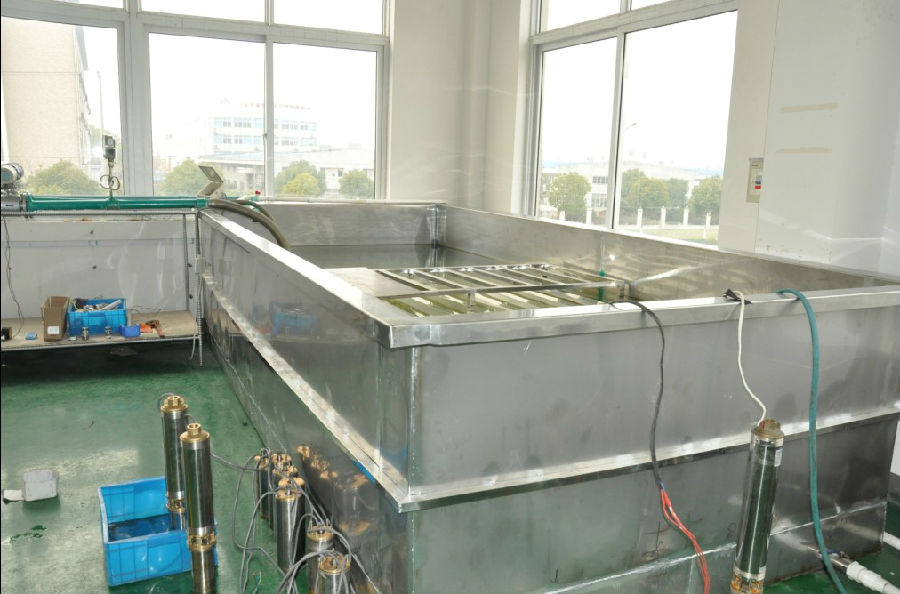
the application:

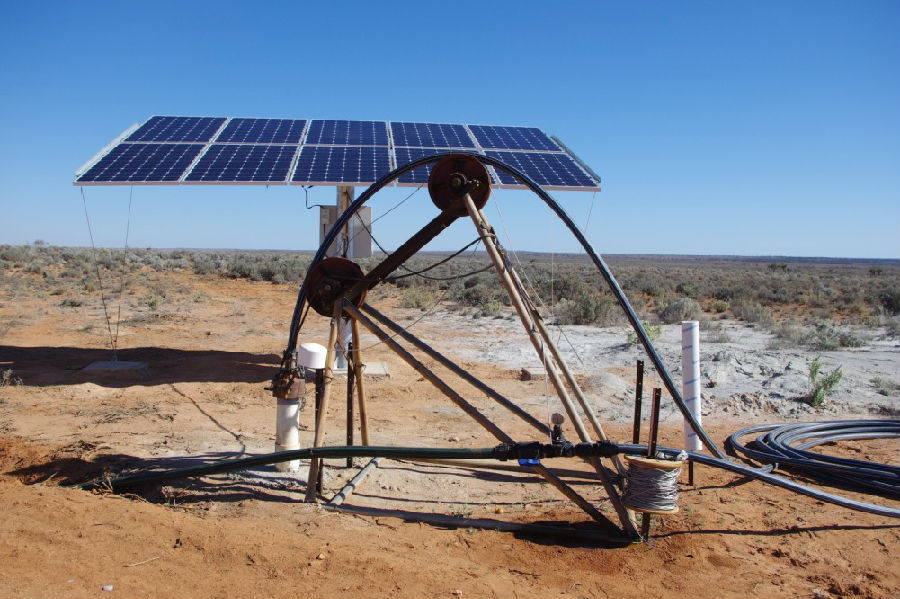
the package:
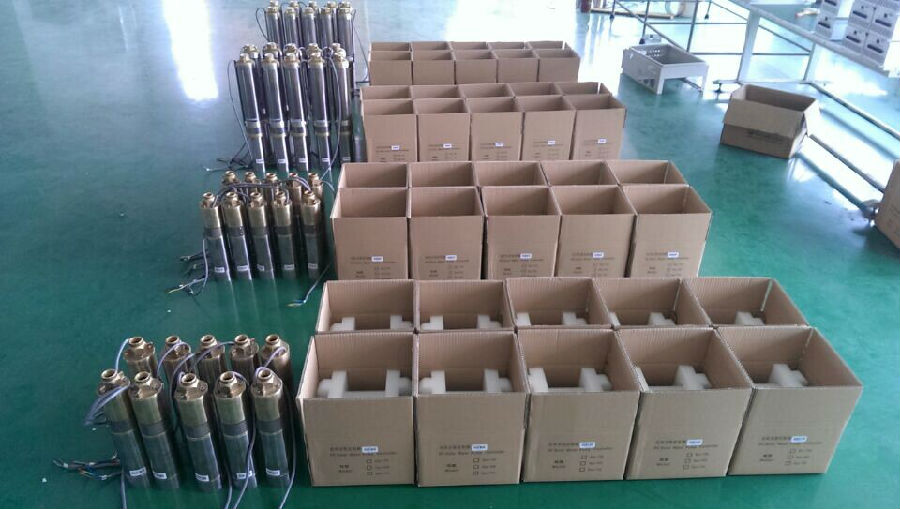
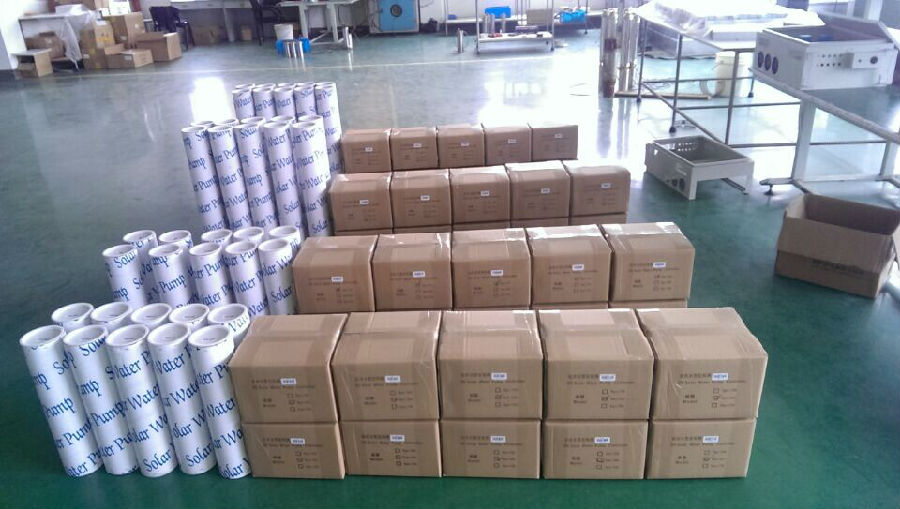

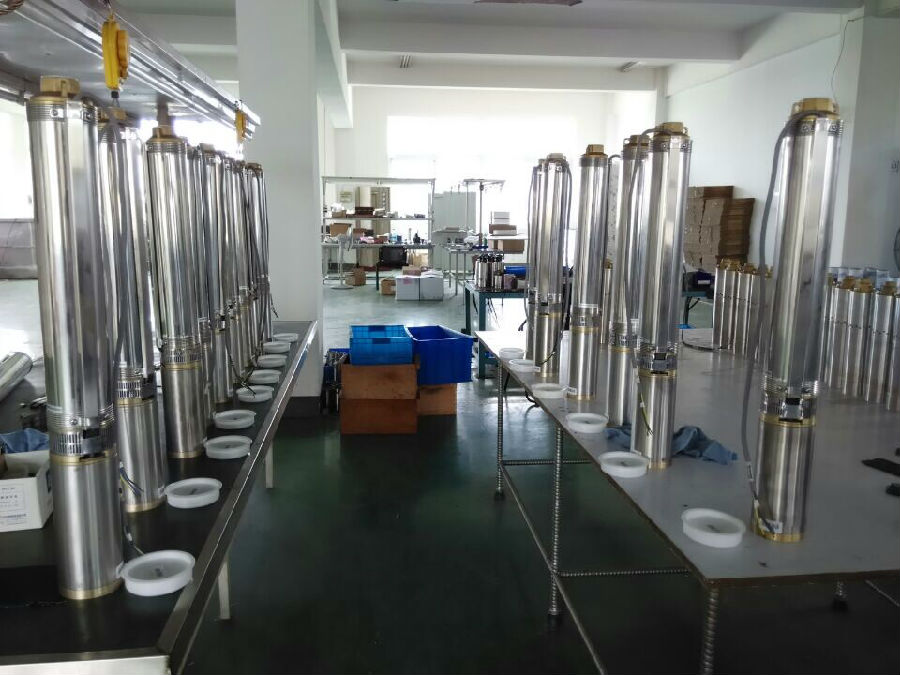
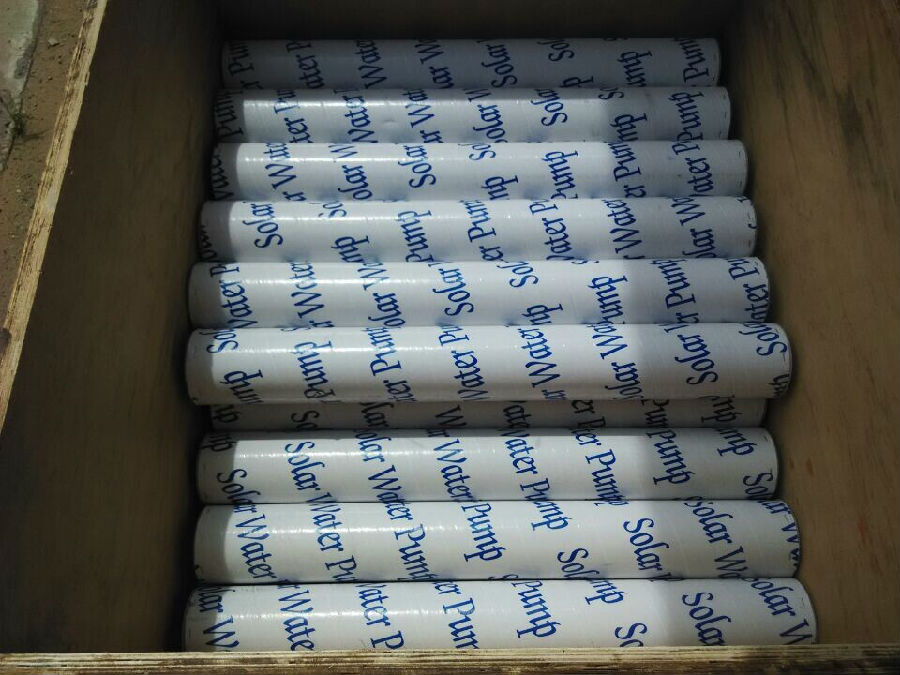
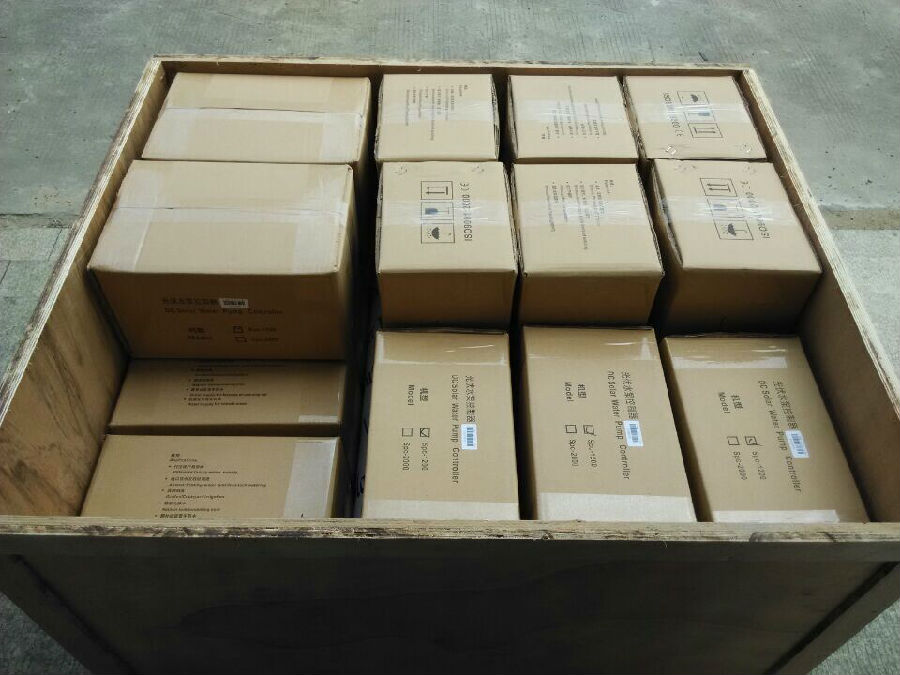
- Q: What are the maintenance requirements for a solar pump?
- The maintenance requirements for a solar pump typically involve regular cleaning of the panels to ensure optimal sun exposure, checking and tightening connections, inspecting and replacing worn-out parts if necessary, and monitoring the performance of the pump system. Additionally, it is important to regularly check the water filters and clean or replace them when needed to prevent clogging and ensure efficient operation. Overall, proper maintenance and periodic servicing are crucial to maximize the lifespan and efficiency of a solar pump.
- Q: Can a solar pump be used for pond aeration?
- A solar pump is capable of being utilized for pond aeration. Designed to operate solely on solar energy, these pumps offer an environmentally friendly and cost-effective solution for enhancing the aeration of ponds. By harnessing the power of the sun, these pumps are able to circulate water and promote aeration within the pond, a crucial factor in maintaining the well-being of aquatic life. Aeration aids in the proper regulation of oxygen levels, prevents the proliferation of algae, and enhances the overall quality of the water. Furthermore, solar pumps are simple to install and operate, requiring minimal upkeep and eliminating electricity expenses. For pond owners seeking to improve the ecosystem of their ponds, solar pumps represent a practical and sustainable choice.
- Q: Can solar pumps be used in areas with high salt or mineral content in the water?
- Yes, solar pumps can be used in areas with high salt or mineral content in the water. However, it is important to choose solar pumps that are specifically designed to handle such conditions. These pumps are typically constructed with corrosion-resistant materials and may have additional features like built-in filters or desalination capabilities to prevent damage and ensure efficient water pumping.
- Q: Can a solar pump be used in areas with high winds?
- Indeed, areas with high winds can accommodate the utilization of a solar pump. Nevertheless, it is crucial to contemplate the precise design and installation prerequisites in order to guarantee its efficacy and longevity. In areas with high winds, it is recommended to employ a solar pump that boasts a resilient and sturdy construction, encompassing fortified brackets and mounting systems. Furthermore, the installation of windbreaks or protective structures might be indispensable to shield the solar pump from unwarranted wind exposure. By adopting these precautions, a solar pump can carry out its functions proficiently and furnish water even in regions with blustery conditions.
- Q: What is the expected maintenance schedule for a solar pump system?
- Factors such as the type and size of the solar pump system, manufacturer recommendations, and operating conditions can affect the expected maintenance schedule. However, there are general guidelines that can be followed. To ensure optimal performance and longevity, it is typically recommended to conduct regular maintenance checks on a solar pump system every six months. These checks should include inspecting the solar panels for any damage or signs of wear and cleaning them to remove dirt, dust, or debris that may block sunlight. The pump itself should also be inspected for leaks, wear and tear, and abnormal noise. Electrical connections should be checked for tightness and signs of corrosion. Monitoring the water levels in the storage tank or well is important to ensure proper functioning. If the solar pump system includes a battery bank, it is advisable to monitor and maintain it. This may involve checking the battery voltage, cleaning the terminals, and ensuring proper charging and discharging cycles. Keep in mind that maintenance requirements may vary for different types of solar pump systems. It is recommended to consult the manufacturer's guidelines for a more accurate maintenance schedule tailored to the specific system in use. Regular maintenance is crucial for optimal performance, longevity, and preventing potential issues with a solar pump system. By following a recommended maintenance schedule, it is possible to ensure efficient operation, reduce the need for costly repairs, and extend the system's overall lifespan.
- Q: What is the required maintenance schedule for a solar pump?
- The required maintenance schedule for a solar pump typically involves checking and cleaning the solar panels regularly to ensure they are free from dust or debris that could hamper their efficiency. Additionally, it is recommended to inspect the pump system, including its wiring, connections, and controller, periodically to identify any potential issues or damage.
- Q: What is the maximum head lift of a solar pump?
- The maximum head lift of a solar pump refers to the maximum vertical distance that the pump can lift water from a source to the discharge point. This measurement is affected by various factors such as the power of the solar panels, the size and efficiency of the pump, and the diameter and length of the pipes. The specific maximum head lift can vary depending on the model and specifications of the solar pump being used.
- Q: What are the safety measures to be taken while installing a solar pump?
- When installing a solar pump, several safety measures should be taken to ensure the protection of individuals and the equipment. These measures include proper grounding of the system to prevent electrical hazards, wearing appropriate personal protective equipment (PPE) like gloves and safety goggles, following manufacturer's instructions and guidelines, and ensuring that all electrical connections are secure and insulated. It is also important to conduct a thorough risk assessment of the installation site, including identifying potential hazards such as uneven terrain or overhead power lines, and taking necessary precautions to mitigate those risks. Additionally, regular maintenance and inspections should be performed to ensure the safe operation of the solar pump system.
- Q: Can a solar pump be used for water circulation in cooling systems?
- Yes, a solar pump can be used for water circulation in cooling systems. Solar pumps are designed to run on solar power, which means they can operate without being connected to the grid. This makes them a sustainable and cost-effective option for water circulation in cooling systems, especially in areas with abundant sunlight. Solar pumps can be used to circulate water through heat exchangers, radiators, or other cooling components, helping to remove heat and maintain optimal temperatures in the system. They are commonly used in solar water heating systems and can also be utilized in air conditioning systems or industrial cooling processes. Overall, solar pumps offer a green and efficient solution for water circulation in cooling systems, reducing energy consumption and environmental impact.
- Q: Can a solar pump be used in areas with limited access to water supply networks?
- Yes, a solar pump can be used in areas with limited access to water supply networks. Solar pumps do not rely on a connection to the electrical grid or existing water supply infrastructure. They can be installed in remote locations where traditional water supply networks are unavailable or inadequate. Solar pumps utilize solar energy to power the pumping mechanism, making them an ideal solution for areas with limited access to water supply networks.
Send your message to us
Shurflo Solar Submersible Water Pump
- Loading Port:
- Shanghai
- Payment Terms:
- TT OR LC
- Min Order Qty:
- -
- Supply Capability:
- 300 set/month
OKorder Service Pledge
Quality Product, Order Online Tracking, Timely Delivery
OKorder Financial Service
Credit Rating, Credit Services, Credit Purchasing
Similar products
Hot products
Hot Searches
Related keywords

